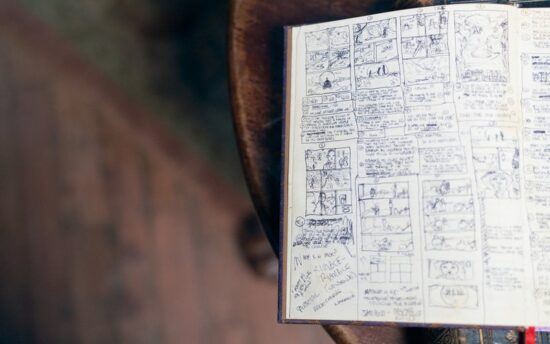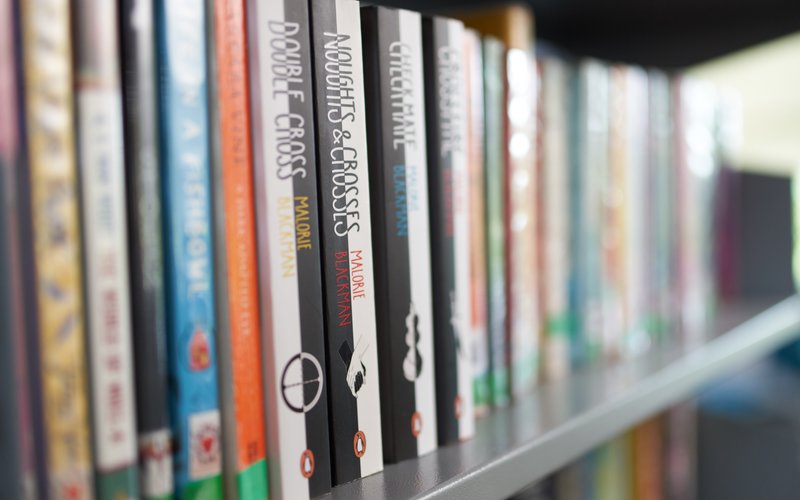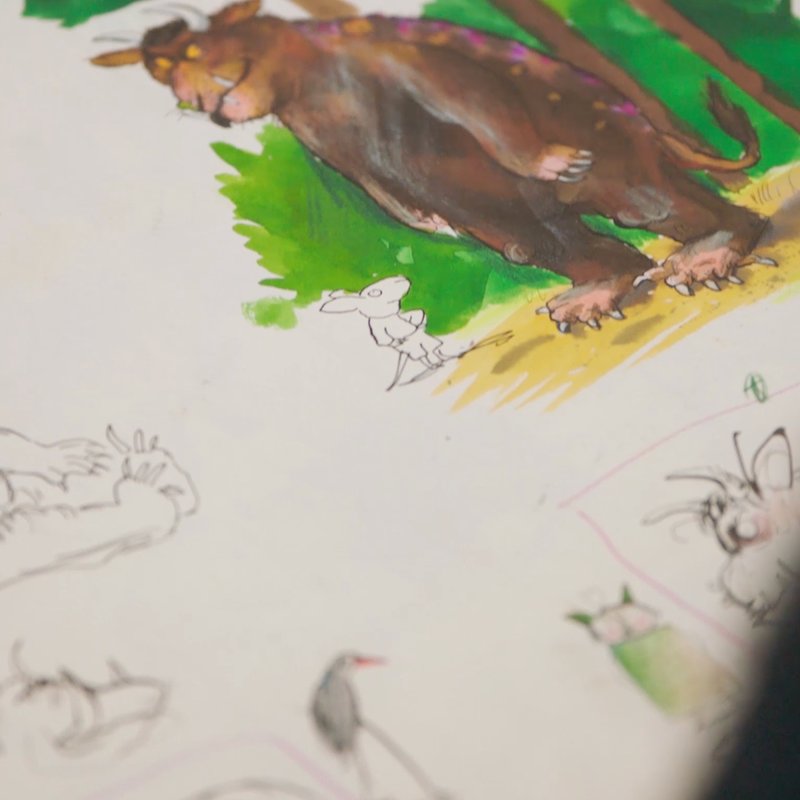
Story and plot are closely related, but they’re not the same.
It is often said that plot cannot exist without story, yet that plot is what brings a story to life. In many ways they are co-dependent, and – when well executed – complement each other perfectly to take the reader on a thrilling ride they won’t forget.
So what’s the difference between story and plot? Understanding the key differences can help you write a better novel. Read on to find out more.
Understanding story
Story is a major ingredient in any aspiring or established writer’s repertoire. Thinking of story as a ‘what if…?’ question can really start the creative juices flowing.
“The most interesting situations can usually be expressed as a what-if question,” says prolific horror novelist Stephen King in his book On Writing.
Let’s look at some ‘what if’ examples and the stories they inspired:
What if… someone discovered they could extract dinosaur DNA from prehistoric mosquitoes preserved in amber to create cloned dinosaurs? Then what if they opened a theme park with the cloned dinosaurs? (Jurassic Park)
What if… the heroine fell in love with a man who had his mad wife locked in the attic the whole time? (Jane Eyre)
What if… aliens invaded Britain at the turn of the 20th century? (The War of the Worlds)
Asking ‘what if’ can be the catalyst to spark a great story idea. So be curious about the world around you and let it inspire your imagination every day.
Story is also the hook on which all other literary elements hang – character, setting, theme, narrative and… plot. From the initial idea of a story, everything else follows. Crafting a story can seem like a huge endeavour at first, but luckily there are online writing courses, podcasts and books aplenty to help you break it down step-by-step.
Ultimately, your story is what draws readers in. It’s a quick one or two-liner that you will tell people when they ask what your book is about.
But how are you going to tell that story? How can you tell it in a powerful way that keeps your reader engaged because they want to know what happens next? This is where plot comes in.

Understanding plot
In many ways, story is the big picture and plot is the practical side of getting your story down on paper.
“I find a lot of people look down on plot, as something a bit mechanical,” says author of The Gruffalo, Julia Donaldson, in her BBC Maestro writing course. “But actually, plot is incredibly important.”
Once you have your story idea, you’ll want to spend some time working out how you are going to tell that story. What needs to happen to drive the story forward? Think of plot as a sequence of events and organise those events in the most interesting way for your reader. Decide when to reveal information and when to hold back. Plot keeps your reader turning the pages of your novel.
Some writers don’t plan ahead, but others have very detailed story structures plotted out. When you’re just starting out writing, it’s a good idea to create a basic plot structure to keep you on track.
Bestselling children’s author, David Walliams, always uses a story map to plan out his plot. This is the skeleton structure of his story and maps out a number of incidents he’s planning on leading up to as he writes.
“I find it very helpful to have a sense of where I’m going, even if I don’t necessarily know how I’ll get there,” says Walliams in his BBC Maestro writing course.
Your plot could follow screenwriting teacher Syd Field’s famous three-act structure for plot – set up, confrontation, resolution. Or you could model your plot on another popular structure – inciting incident, rising action, climax, falling action and resolution.
Speaking of the first draft of her debut novel Hacker, author Malorie Blackman said, “there were holes in that plot you could drive a bus through, because I hadn’t sat down and plotted it out”.
After some careful rewrites and a good deal of reworking the plot, Hacker was published and went on to win the WH Smith Children’s Book of the Year award and the Young Telegraph Children’s Book of the Year award. “Now I always outline my novels,” added Blackman.
In her BBC Maestro writing course, Blackman points out that she never sits down to write a novel without the following:
- An outline
- Synopsis – 1 to 2 pages summarising the story
- Chapter breakdown – a plan for what’s going to happen in each chapter
- Biography of major characters
Creating a plot isn’t easy, even the most seasoned writers find the process to be challenging.
“I think I’m not alone when I find the creation of an intriguing, satisfying, unpredictable plot, the most difficult part of writing. I find it reasonably easy to think of a promising idea. But to develop it is much harder,” says author of The Gruffalo, Julia Donaldson, in her BBC Maestro writing course. Donaldson shares a helpful tip for plot writing – try to devise your plot backwards, start with the ending and work back from there.
Remember, your plot structure should act as a guide when you sit down to write, but is by no means a hard and fast rule. Many authors discover, once they start writing, that the story tends to take a different direction from what they had originally planned. Often it is the characters themselves that start to drive the direction of the story.
You should come to know your characters so well that you will reach moments you had plotted that you now realise they would never do. This is the point where your characters are almost alive. Even if it throws your plot off, you should always listen to what your characters are saying.
Alan Moore, Writer
Characters and plot
“The most important thing driving your plot forward is your characters,” says Malorie Blackman.
Ask yourself – how are your characters going to react to different situations? Will they stay calm when faced with danger? Or do they lose their nerve at the slightest hurdle? Ultimately it is the journey that your characters experience that your readers are most interested in.
“You should come to know your characters so well that you will reach moments you had plotted that you now realise they would never do,” says illustrious author, Alan Moore. “This is the point where your characters are almost alive. Even if it throws your plot off, you should always listen to what your characters are saying.”
Your story arc will follow your main characters’ wins and their losses. Who are they at the start of the story? Who are they at the end? What happens to them to make them change?
Your characters facing, and overcoming, bigger and bigger problems, will help your novel reach an emotionally satisfying conclusion.

In summary
Story is what your book is about, plot is the sequence of events that helps you tell the story.
Alan Moore perfectly sums up the difference between story and plot when he says, “always remember that the plot is not the story. It is just what gets you from one end of the story to the other. For example, the plot of George Orwell’s Animal Farm – some animals take over a farm – is not what the book is about.”
To successfully create a work of fiction you need both story and plot working together. Plot points help your character move from the beginning of the tale, to the middle, and to a satisfying conclusion in the world of your story.
Mastering the craft of plotting can truly bring your story to life.
“Good story’ means something worth telling that the world wants to hear. Finding this is your lonely task… But the love of a good story, of terrific characters, and a world driven by your passion, courage, and creative gifts is still not enough. Your goal must be a good story well told,” says Robert McKee in his book Story: Substance, Structure, Style, and the Principles of Screenwriting.
Are you ready to start learning more about the writing process? Explore our range of online writing courses.

Give the gift of knowledge
Surprise a special someone with a year's access to BBC Maestro or gift them a single course.


